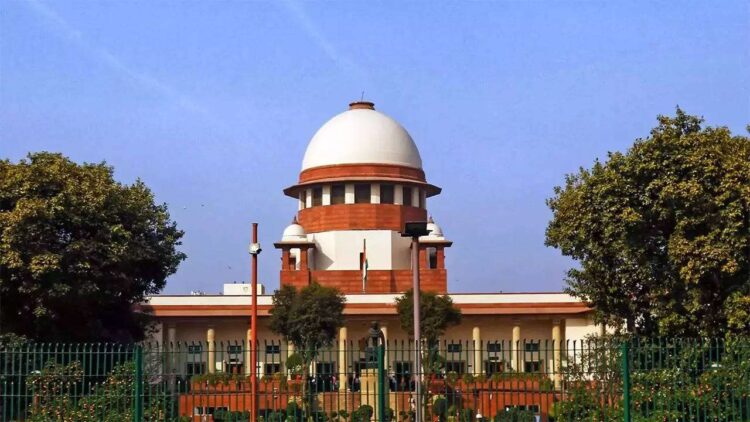The Rouse Avenue Court has scheduled May 20 for the consideration of the Enforcement Directorate’s (ED) supplementary chargesheet against Delhi Chief Minister Arvind Kejriwal and the Aam Aadmi Party (AAP) in a money laundering case related to the Delhi excise policy.
Special Judge Kaveri Baweja set the date for arguments and ED’s submissions regarding the chargesheet. On Friday, ED officials, along with Special Public Prosecutor (SPP) Naveen Kumar Matta, submitted the chargesheet to the court.
During a recent bail hearing for Manish Sisodia in the Delhi High Court, the ED indicated that AAP would be named as an accused in the case. The ED also informed the Supreme Court that AAP would be co-accused in the money laundering case. Additional Solicitor General SV Raju, representing the ED, stated before a bench of Justices Sanjiv Khanna and Dipankar Datta that there is direct evidence of Kejriwal demanding Rs 100 crore in kickbacks, allegedly used for AAP’s Goa election expenses.
Raju further argued that Kejriwal is directly liable for his involvement in formulating the excise policy and mentioned evidence showing that his stay in a seven-star hotel in Goa was partly funded by an accused.
The bench questioned whether the investigating officer could ignore exculpatory materials while exercising the powers of arrest. Kejriwal’s counsel had previously argued that the ED ignored witness statements exculpating him and selectively used incriminating evidence.
On May 10, the Supreme Court granted Kejriwal interim bail until June 1 in the money laundering case but ordered him not to visit the Office of the Chief Minister and the Delhi Secretariat. Kejriwal is required to surrender on June 2.
The Supreme Court was hearing Kejriwal’s appeal against a Delhi High Court judgment that dismissed his plea against arrest and remand by the ED. Kejriwal argued that his arrest was politically motivated, coinciding with the announcement of General Elections.
On April 9, the High Court dismissed Kejriwal’s plea for release from jail, rejecting his claims of political vendetta. The court noted that his absence from nine ED summons over six months undermined any claims of special privilege as Chief Minister, suggesting his arrest was due to non-cooperation.
Kejriwal was arrested by the ED on March 21 in connection with alleged irregularities in the now-cancelled Delhi excise policy 2021-22.

















Comments